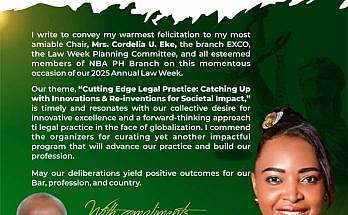LAWYERS AS INSTRUMENT OF ECONOMIC STABILITY IN DWINDLING POST-ELECTION NIGERIAN ECONOMY. —-BY MAZI AFAM OSIGWE, SAN
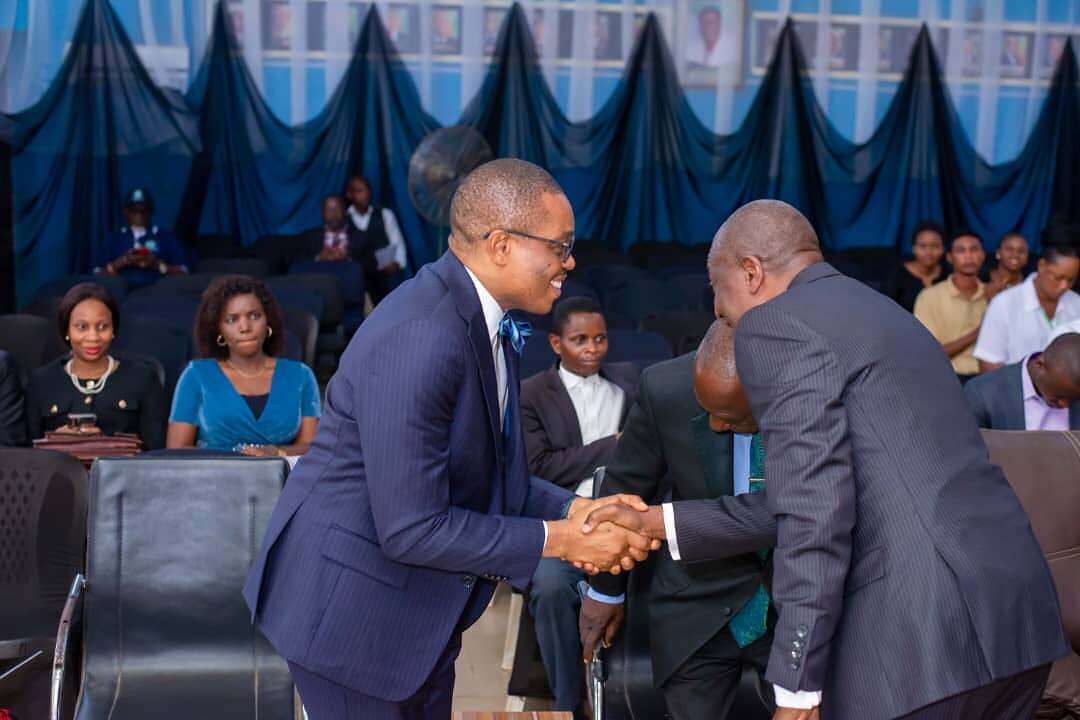 1. I am grateful to the Nigerian Bar Association, Ado-Ekiti Branch for inviting me to share my thoughts on the above topic. My special thanks goes to the Chairman of Branch, other officers of the executive committee, and the members of the Annual Law week Organising Committee, who thought it would be a good idea to have me speak on the topic. This discussion will always be a very topical one because we must all contribute to the conversationon ways lawyers take can contribute effectively to the stability of the Nigerian economy and its subsequent development.
1. I am grateful to the Nigerian Bar Association, Ado-Ekiti Branch for inviting me to share my thoughts on the above topic. My special thanks goes to the Chairman of Branch, other officers of the executive committee, and the members of the Annual Law week Organising Committee, who thought it would be a good idea to have me speak on the topic. This discussion will always be a very topical one because we must all contribute to the conversationon ways lawyers take can contribute effectively to the stability of the Nigerian economy and its subsequent development.The elections are over, and the Independent National electoral commission has announced a number of persons as winners into different elective positions. While some are celebrating their victory, others feel disappointed or frustrated that their preferred candidate(s) did not win. Some believe the election process was not fair, but all this is currently before the different election tribunals currently siting across the country, and we hope that justice would be served.
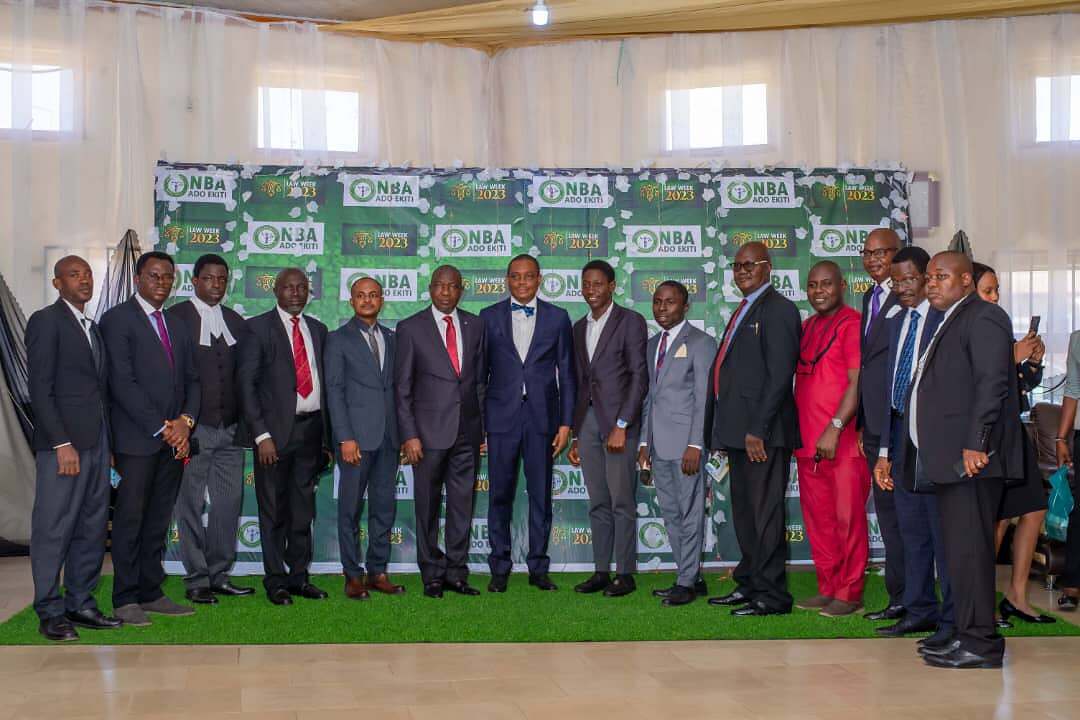 Elections Adversely Affect The Economy.
Elections Adversely Affect The Economy.
3 Apart from the direct expenses involved in conducting elections as well as mounting legal challenges to perceived wrong-doing against some stages or aspects of the electoral process, there are also many indirect costs. Available data generally show that the economy of any country usually slows down before an election year. National and state debts usually experienced a marked increase before an election. Government usually introduce policies which have little or no economic benefits but have political benefits. Welfare policies which are oftentimes unsustainable in the long are introduced by governments so as to woo voters to support the party in power.
Sadly, voters frequently focus on the short term benefits that they are likely to receive which causes governments to spend a lot of money trying to look good just before the elections.
4 Every political party and their candidates spend millions of money thereby resulting in price inflation (a lot of money chasing limited amounts of goods). Items like food (grains, and drinks also tend to face shortage which leads to an increase in their price. One therefore agrees with MayowaTijani when he stated that “the Nigerian economy never experiences a recession before an election year. But the more interesting part of these indices is that Nigeria’s manufacturing indices often reduces before an election year — yet GDP grows. In simple English, we often manufacture less in the year before an election year, but GDP grows. You see the magic? The magic is spending. Consumption’. This does not always work as the economy usually performs badly at periods leading up to election seasons in Nigeria.
5 In Nigeria, about 53.40 percent of youths are unemployed. According to youth unemployment rates released by the National Bureau of Statistics in 2022,” Fifty-three percent of 151 million Nigerian youths are over 80 million unemployed. This high rate of youth unemployment is on account of government’s failure to create jobs at a sustainable rate to compensate for its increasing population. In appreciation of the need to create jobs at a sustainable rate the Federal Government recently inaugurated a Technical Working Group (TWG) on Youth Employment and Skill Development to handle the increasing youth unemployment and skill development in the country.
While inaugurating the TWG, the Minister of State, Budget and National Planning, Prince Clem Ikanade Agba, noted that the Federal Government was “committed to providing an enabling environment for the creation of 21 million full-time jobs and lifting 35 million people out of poverty by the year 2025 as encapsulated in the NDP: 2021-2025.” 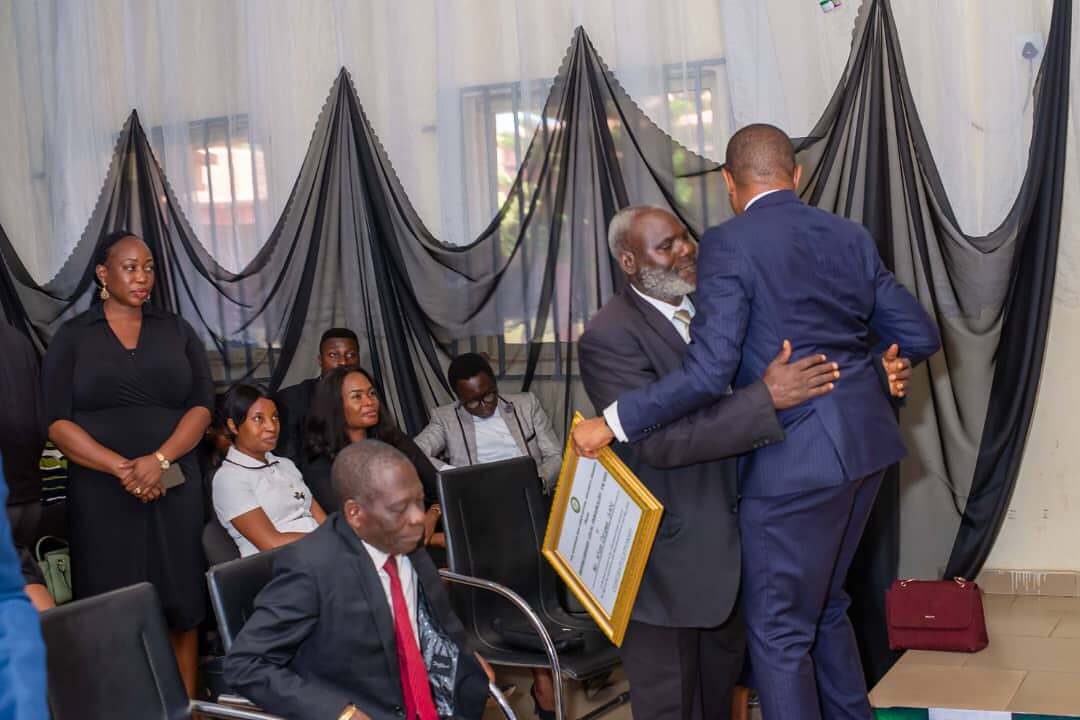 6 Despite the Federal Government’s assurances of government’s commitment towards creating jobs for the teeming youths, a large percentage of youths remain unemployed. These youths easily become willing tools for the perpetration of nefarious activities. Many persons who would ordinarily be engaged in some form of productive activities like farming etc, are easily recruited by politicians as thugs, canvassers etc. These youths are used to wreak havoc, attack political opponents, disrupt the campaign material of rival political parties and engage varying degrees of violence. It is believed that the funds used to perpetrate these violent activities are oftentimes largely money looted from public purse. Muktar Garba Kobi writing in Daily Trust noted that these “unemployed youths are like cats that submit to be fed; they become susceptible to thuggery”.
6 Despite the Federal Government’s assurances of government’s commitment towards creating jobs for the teeming youths, a large percentage of youths remain unemployed. These youths easily become willing tools for the perpetration of nefarious activities. Many persons who would ordinarily be engaged in some form of productive activities like farming etc, are easily recruited by politicians as thugs, canvassers etc. These youths are used to wreak havoc, attack political opponents, disrupt the campaign material of rival political parties and engage varying degrees of violence. It is believed that the funds used to perpetrate these violent activities are oftentimes largely money looted from public purse. Muktar Garba Kobi writing in Daily Trust noted that these “unemployed youths are like cats that submit to be fed; they become susceptible to thuggery”.
7 Aside not doing enough to create jobs and sustainably stimulate the economy, it appears that elected and appointed officials abandon governance in the run-up to elections. Their pre-occupation with elections relegate governance to a back seat.
At such times they are much more interested in actions and decisions that will ensure that they and their political parties win elections. President Muhammadu Buhari, had to warn ministers, permanent secretaries and heads of government agencies at the closing ceremony of the 2022 Ministerial Performance Review Retreat not to abandon the business of governance for electioneering, saying ”any infraction will be viewed seriously.”
Sadly, when elected and appointed government officials at such times are more interested in exploiting poverty, greed, lust for power, and illiteracy to rally voters with food items such as rice, seasoning, and money.
This has commonly referred to as “stomach infrastructure” politics. Incidentally, it is commonly believed the term “stomach infrastructure” was first used here in Ekiti State during the 2015 election when the PDP gubernatorial candidate Ayodele Fayose mobilized voters with food items and money to defeat his opponent Kayode Fayemi
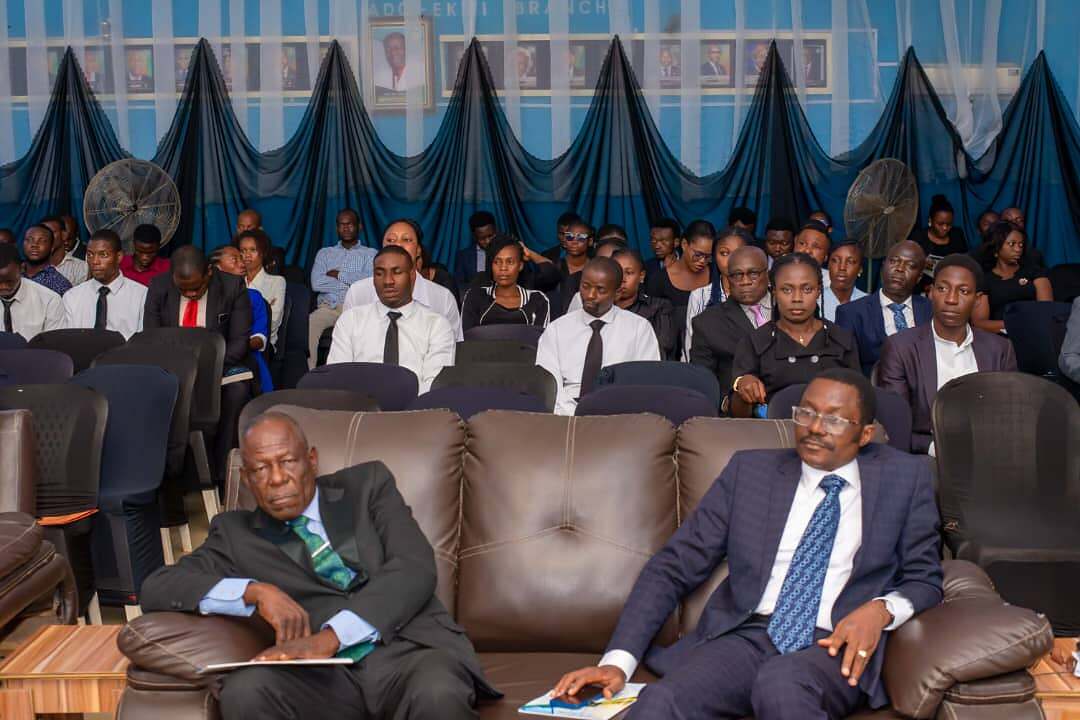 8 Available statistics show that Nigeria has consistently ranked low in the World Governance Index in areas such as government effectiveness, political stability and the presence of violence and terrorism, rule of law, and control of corruption. Jason Brennan describes the practice of incentivizing people to be irrational and ignorant with their votes as the unintended consequence of democracy. Brennan believes specific expertise is required to tackle socio-economic issues, so political power should be apportioned based on expert knowledge. As Brennan suggests, Nigeria lacks a system of governance in which leadership is based on capability. Rather, the political system in Nigeria is dominated by individuals who gain power through nepotism rather than competence, influence voters with food rather than vision, and consolidate power through intimidation or by incentivizing constituents with material gifts which they frame as “empowerment” to keep them subservient and loyal political followers
8 Available statistics show that Nigeria has consistently ranked low in the World Governance Index in areas such as government effectiveness, political stability and the presence of violence and terrorism, rule of law, and control of corruption. Jason Brennan describes the practice of incentivizing people to be irrational and ignorant with their votes as the unintended consequence of democracy. Brennan believes specific expertise is required to tackle socio-economic issues, so political power should be apportioned based on expert knowledge. As Brennan suggests, Nigeria lacks a system of governance in which leadership is based on capability. Rather, the political system in Nigeria is dominated by individuals who gain power through nepotism rather than competence, influence voters with food rather than vision, and consolidate power through intimidation or by incentivizing constituents with material gifts which they frame as “empowerment” to keep them subservient and loyal political followers
9 The increased spending by governments and politics leads to a decline in manufacturing and other productive sectors. Some analysts posit the little decline in manufacturing and increased government spending, will occasion enhancement inflation in the economy, and maybe stabilize the Naira. Talking about the 2023 election, Mayowa Tijani equally noted that “If the data is anything to go by, in 2022 we would see a little decline in manufacturing, a jump in government spending, a boost in the economy, and some stability with the naira.
This is not to say the naira would not record the usual drop here and there, but as a campaign tool, the performance of the naira would not be so bad in 2022. I cannot say the same for 2023”. The optimism that the Naira would stabilize in 2023 has not come to fruition. he Naira depreciated to N461.54 against the dollar in February 2023 from N416.32 reported in February 2022.
10 Analysts at Emerging Africa in a report believed that there is a possibility of another devaluation of the Naira by the CBN in 2023 in order to enable the reflection of current economic realities. They said, “We expect the trend of failing reserves to be sustained in 2023 on the back of the limited foreign investment inflows and increasing foreign exchange demand barring any major structural reforms in the Nigerian foreign exchange market. However, the possible removal of fuel subsidiary will improve the growth of the reserves and provide the CBN with resources to defend the Naira.”
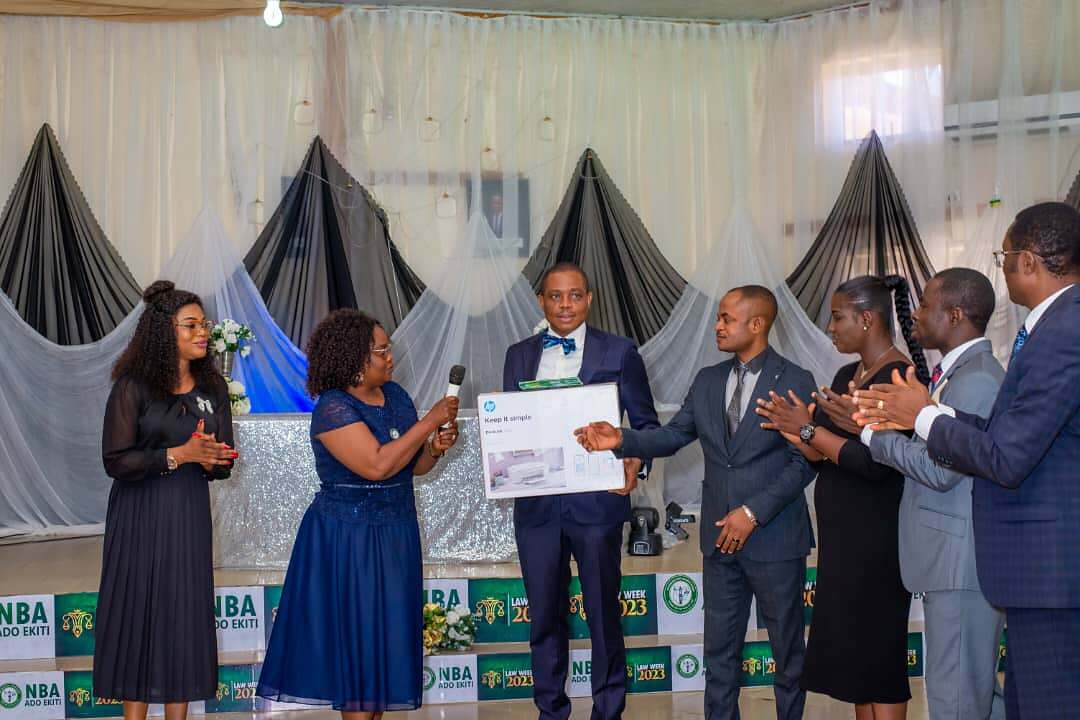 11 KPMG Nigeria says the naira faces risk of further depreciation in 2023 due to the recent decline in foreign capital importation into Nigeria. In an article released on Thursday, titled, ‘Precipitous Decline in Foreign Capital in a Transition Period’, the firm predicted that the country may also struggle to attract foreign capital during the year, unless crude oil and non-oil exports are increased.
11 KPMG Nigeria says the naira faces risk of further depreciation in 2023 due to the recent decline in foreign capital importation into Nigeria. In an article released on Thursday, titled, ‘Precipitous Decline in Foreign Capital in a Transition Period’, the firm predicted that the country may also struggle to attract foreign capital during the year, unless crude oil and non-oil exports are increased.
According to the report; “The persistent decline in capital importation may be attributed to the rounds of global economies’ monetary tightening, since the COVID 19 Pandemic and into the Russia/Ukraine war, low investor confidence due to the ambiguous foreign exchange regime, challenges in accessing foreign exchange, high foreign exchange volatility, unflattering ratings by Moody’s and Standards and Poors’, continuous security challenges, high cost of doing business, weak growth and high inflation and interest rates, fiscal and monetary constraints and all in a period of tense political transition.”
The report also noted that “while substantial reforms may yet be done to reverse the trend of declining foreign capital in the long term, we believe that in the meantime, the country will struggle to attract increasing foreign capital for most of 2023 and struggle to keep the exchange rate from depreciating further, unless it is able to boost its crude oil and non-oil exports, especially now that oil prices are once again rising”.
12 Before and after the declaration of results of the February 25, 2023 Presidential and the National Assembly elections there was tension and unease across the country. Tensions continued to escalate amid allegations of vote-rigging which was circulated heavily on social media. In Lagos, some markets and shops like Alaba International Market, Ladipo Auto Spare Parts Market Auto Spare Part and Machinery Dealers Association Trade Fair-Lagos State closed after the election. Food markets at Mile 12, Lagos witnessed low activities. In Abuja, some employers asked their workers to work from home while some businesses refused to open as people were apprehensive there would be violence.
13 It was clear that some people, especially business people did not open their businesses as they did not feel safe. Likewise many traders and farmers who move food-stuffs and agricultural products across state lines or communities could not do so. The failure of businesses to open up shops or goods to be transported across states, led to temporarily scarcity of important items with attendant increase in prices.
This is worrisome considering that the Naira has continued to decline against major international currencies. Being largely dependent on imported goods, Nigerians have been experiencing increase in cost of so many goods even in the absence of post-election economic decline. In fact, World Bank revealed that the naira recorded a 10.2% (percent)depreciation in 2022, prompted by rising food and fuel prices globally, among other stimulants. We will shortly make reference to a few reports to show their predictions about the effect of the 2023 general elections on the Nigerian economy.
14 In its Africa Pulse report, the World Bank stated that the depreciation of the exchange rate was also a major contributor to inflationary pressures in the Sub-Saharan region. According to it “In Nigeria, recently released activity data show mixed results. On the one hand, real GDP growth was higher than expected in the fourth quarter of 2022. It picked up to 3.5 percent y/y, from 2.3 percent in the third quarter. Both oil and non-oil sector activity improved by late 2022”.
15 The International Monetary Fund (IMF) in its World Economic Outlook for April 2023, titled ‘A Rocky Recovery’, forecast a three percent growth in the country’s gross domestic product (GDP) for 2024.According to the Nigeria Bureau of Statistics “In January 2023, the headline inflation rate rose to 21.82% compared to December 2022 headline inflation rate which was 21.34%. Looking at the trend, the January 2023 inflation rate showed an increase of 0.47% points when compared to December 2022 inflation rate. However, on a year-on-year basis, the headline inflation rate was 6.22% points higher compared to the rate recorded in January 2022, which was 15.60%. This shows that the headline inflation rate (year-on-year basis) increased in the month of January 2023 when compared to the same month in the preceding year (i.e., January 2022)”.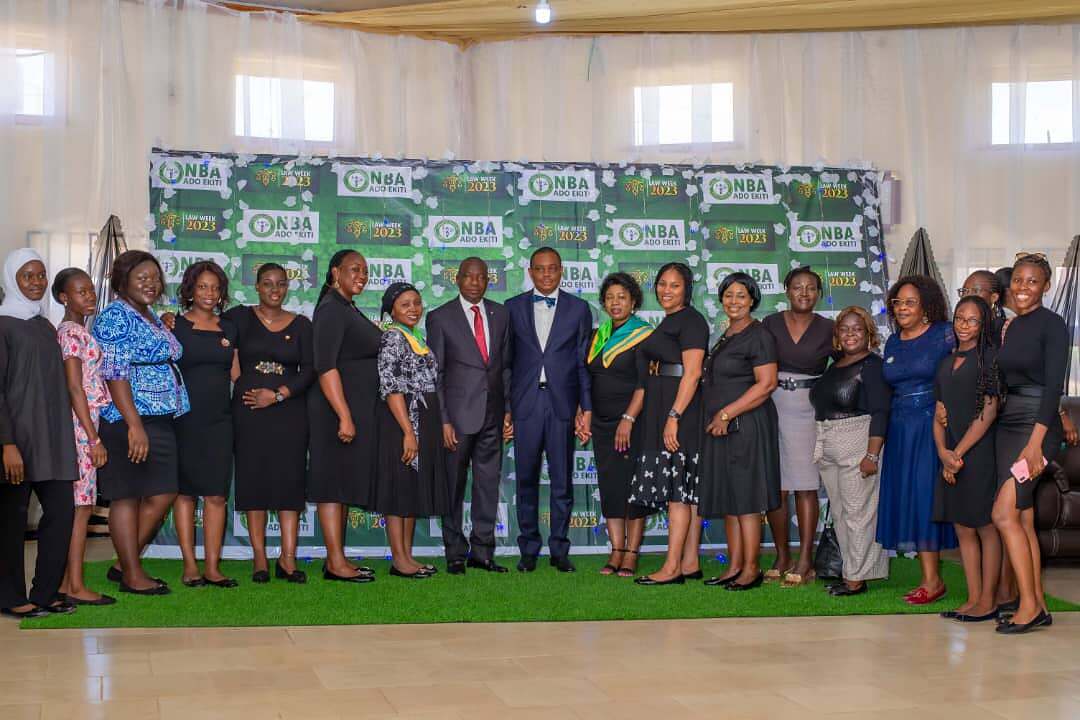 16 In its report titled ‘Global Economic Outlook – H1 2023,’ KPMG predicted that Nigeria’s Gross Domestic Product (GDP) will grow at a slow pace of 3 percent in 2023. The reports emphasises that the slowdown in economic activity during political transitions in Nigeria is a major contributing factor to the slow growth. The report further noted that “Additionally, growth will be negatively affected by the naira Redesign Policy introduced in Q4 2022 andQ1 2023 and its implications on key non-oil sectors like manufacturing, trade, accommodation and food services, transportation and other services, further slowing down overall GDP growth in 2023.”
16 In its report titled ‘Global Economic Outlook – H1 2023,’ KPMG predicted that Nigeria’s Gross Domestic Product (GDP) will grow at a slow pace of 3 percent in 2023. The reports emphasises that the slowdown in economic activity during political transitions in Nigeria is a major contributing factor to the slow growth. The report further noted that “Additionally, growth will be negatively affected by the naira Redesign Policy introduced in Q4 2022 andQ1 2023 and its implications on key non-oil sectors like manufacturing, trade, accommodation and food services, transportation and other services, further slowing down overall GDP growth in 2023.”
“Regrettable, despite the President Muhammadu Buhari-led administration’s target of lifting 100 million Nigerians out of poverty over the next 10 years, no fewer than 133 million Nigerians, representing 63 per cent of the population\are currently living in multi-dimensional poverty. Of the total, 105.98 million poor Nigerians are located in rural areas compared to 16.97 million in urban areas. According to the Nigeria Multidimensional Poverty Index (MPI) 2022 Survey, there are high deprivations in sanitation, time to healthcare, food insecurity, and housing.
Also, poor people were said to experience over one-quarter of all possible deprivations. Moreover, both the incidence and intensity of poverty at 62.9 per cent and 40.9 per cent respectively exceeded the 26 per cent poverty cut-off threshold. The report stated that over half of the 200 million population who are multi-dimensionally poor, cook with dung, wood, or charcoal, rather than clean energy”.
Economic Stabilization.
18 Permit me to note that generally economic stabilization refers to a governmental effort to stabilize the economy. This happens in circumstances in which the economy is suffering from stress due to inflation, unemployment, or even deflation. The main purpose of economic stabilization is to stabilize the economy so that it can steadily develop and grow without significant fluctuations. Fluctuates are combinations of growing periods and declining periods in an economy or market. A stable economy is constituted by consistent gross domestic product (GDP) growth, high employment, and adequate individual income levels.
19 The belief that elections usually affect the economy negatively and that lawyers are instrument of economic stability during periods of economic decline after elections, no doubt influenced the choice of this topic. Not everyone agrees with this postulations as some strongly believe that lawyers are leeches, parasites, bloodsuckers and rent-seekers who impair rather than stimulate the economy. Thus, the joke: “Lawyers vs. Vampires – What’s the difference between a lawyer and a vampire? A vampire only sucks blood at night.”. These persons believe that lawyers drain money out of people and organizations and do not contribute to the stability of the economy. They are therefore characterised as rent-seekers .” James H. Andrews notes that “Rent seeking is an economist’s term for, in effect, thievery by organized interests that use political or legal clout to redistribute wealth away from producers. (An oft-cited example is lobbying.) In this reckoning, the upshot of rent seeking by lawyers, mainly through litigation, is that lawyers – or at least an excess thereof – impede economic growth”. In this regard, lawyers are often-times likened to vampires.
20 Lawyers produce social goods, like civil rights and social justice,” writes Ronald Gilson, a professor at Stanford Law School. Lawyers are often referred to as the guardians of the law because they play a critical role in upholding the rule of law and protecting the rights of citizens. They do this by providing legal representation to individuals and organizations, advising them on their rights and obligations under the law, and advocating for their interests in court and other forums. Lawyers also play a key role in ensuring that the law is interpreted and applied correctly. They do this by analyzing and advising on statutes, policies and regulations, and by providing legal opinions to government officials, businesses, and individuals on a wide range of issues. These produces enabling environment for economic growths for economic growth.
21 Lawyers play various roles in strengthening the economy. In the Declaration of the High Level Meeting of the Rule of Law, member states noted that and I quote: “the rule of law and development are strongly interrelated and mutually reinforcing, that the advancement of the rule of law at the national and international levels is essential for sustainable and inclusive economic growth, sustainable development, the eradication of poverty and hunger and the full realization of all human rights and fundamental freedoms, including the right to development, all of which in turn reinforce the rule of law.”
22 The legal industry (a) provides for due implementation and predictability of the law;
(b) protects businesses to navigate through complex legal regulations;
(c) ensures stability, certainty and clear legal boundaries for property rights;
(d) forces greater accountability of public officials; and
(e) postulates greater equilibrium of power between the executive; legislative, judicial, regulatory branches of government.
 21.Lawyers can help to promote transparency and accountability in government institutions by providing legal services to citizens and organizations that are seeking to hold these institutions accountable. For example, they can represent clients in court cases challenging government decisions or actions, or they can advise clients on how to use Freedom of Information laws to obtain information about government activities. Without good governance sustainable development can’t be achieved in a country or society.
21.Lawyers can help to promote transparency and accountability in government institutions by providing legal services to citizens and organizations that are seeking to hold these institutions accountable. For example, they can represent clients in court cases challenging government decisions or actions, or they can advise clients on how to use Freedom of Information laws to obtain information about government activities. Without good governance sustainable development can’t be achieved in a country or society.
22.In order to properly address this topic, it is important to answer the following questions;
i. What are the possible ways through which lawyers can contribute effectively to the stability of the Nigerian’s dwindling post-election economy.
ii. How can lawyers position themselves to be able to function optimally in
Nigerian’s dwindling post-election economy.  23. With respect to the first question, it is important to examine the possible ways through which lawyers can contribute effectively to the stability of the Nigerian’s dwindling post-election economy, because without answering this question, we might as well not have the discussion. The first way lawyers can contribute effectively to the stability of the Nigerian’s dwindling post-election economy, is for lawyers to drive the government’sdevelopmental and fiscal policies. In the dwindling post-election economy, lawyers could be instrumental to economic stabilities. One of thenumerous ways to do this is to steer the government’s development policies. Lawyers can assist governments in developing legal frameworks that are consistent with their development policies. This can include the creation of legislation, rules, and policies that promote economic growth, environmental sustainability, social development, and other goals. When lawyers are not in a position to influence government development policies, they can argue for policies that promote government development goals, both inside the government and in public forums. Lobbying legislators, filing amicus brief in court cases, and collaborating with civil society organizations can all help to create support for policy.
23. With respect to the first question, it is important to examine the possible ways through which lawyers can contribute effectively to the stability of the Nigerian’s dwindling post-election economy, because without answering this question, we might as well not have the discussion. The first way lawyers can contribute effectively to the stability of the Nigerian’s dwindling post-election economy, is for lawyers to drive the government’sdevelopmental and fiscal policies. In the dwindling post-election economy, lawyers could be instrumental to economic stabilities. One of thenumerous ways to do this is to steer the government’s development policies. Lawyers can assist governments in developing legal frameworks that are consistent with their development policies. This can include the creation of legislation, rules, and policies that promote economic growth, environmental sustainability, social development, and other goals. When lawyers are not in a position to influence government development policies, they can argue for policies that promote government development goals, both inside the government and in public forums. Lobbying legislators, filing amicus brief in court cases, and collaborating with civil society organizations can all help to create support for policy.
24. Lawyers can also actively drive the legislative and judicial reforms that will stimulate economic recovery and also boost confidence in the economy. One of the critical tools to achieve this which is often ignored is the law. Law has tools to extract revenue and create jobs. Constructive economic laws and policies play a key role in achieving a balanced economic performance and growth. Lawyers therefore have a critical role to play by ensuring that innovative and transformational tools needed to bring Nigeria out of this revenue crisis are passed.
25. Lawyers can assist in ensuring that government initiatives are implemented in accordance with the law. They can advise on the legal requirements for implementing policies and assist in identifying any legal risks or problems. Lawyers can also assist government officials in better understanding and implementing developmental programs. Training on legal frameworks and requirements, as well as advice on best practices for policy implementation, can be part of this.
26. Another way lawyers can contribute effectively to the stability of the Nigerian’s dwindling post-election economy, is by using laws and policies in attracting, keeping and managing foreign investments. Lawyers are essential in developing a legal environment that encourages foreign investment. This can include advice on the formulation of laws and regulations that safeguard foreign investors’ legal rights, such as property rights, contract enforcement, and intellectual property rights. Flowing from the existence of a favorable legal and predictable environment that supports foreign investment has been established, potential foreign investors will require lawyers to do legal due diligence, giving them a in-depth grasp of the legal risks involved with their investments. This can assist investors in making informed investment decisions and avoiding any legal hazards.
27. The natural offshoot of attorneys assisting foreign investors with legal due diligence would be lawyers assisting in the facilitation of cross-border transactions, such as mergers and acquisitions or joint ventures on their behalf. They can assist investors in navigating the legal and regulatory requirements associated with these transactions and ensuring that all applicable laws and regulations are met. Lawyers can assist foreign investors in navigating the regulatory environment in the country where they are investing, in addition to building a favorable legal and regulatory environment. This can include counseling investors on how to comply with local rules and regulations, such as environmental and labor legislation, and making sure they are informed of any legal risks related with their investments. Lawyers can also help foreign investors defend their legal rights and interests by representing them in legal matters as well as in rendering legal and regulatory advisory services to them.
28. Lawyers equally play a critical role in protecting the rights of citizens by serving as a check on government power. They can do this by representing individuals and organizations in cases challenging government actions or decisions, or by advising them on how to use the legal system to hold government officials accountable. By providing legal representation, advising on legal issues, advocating for the rights of their clients, and serving as a check on government power, lawyers play a critical role in upholding the rule of law and promoting a just and equitable society.
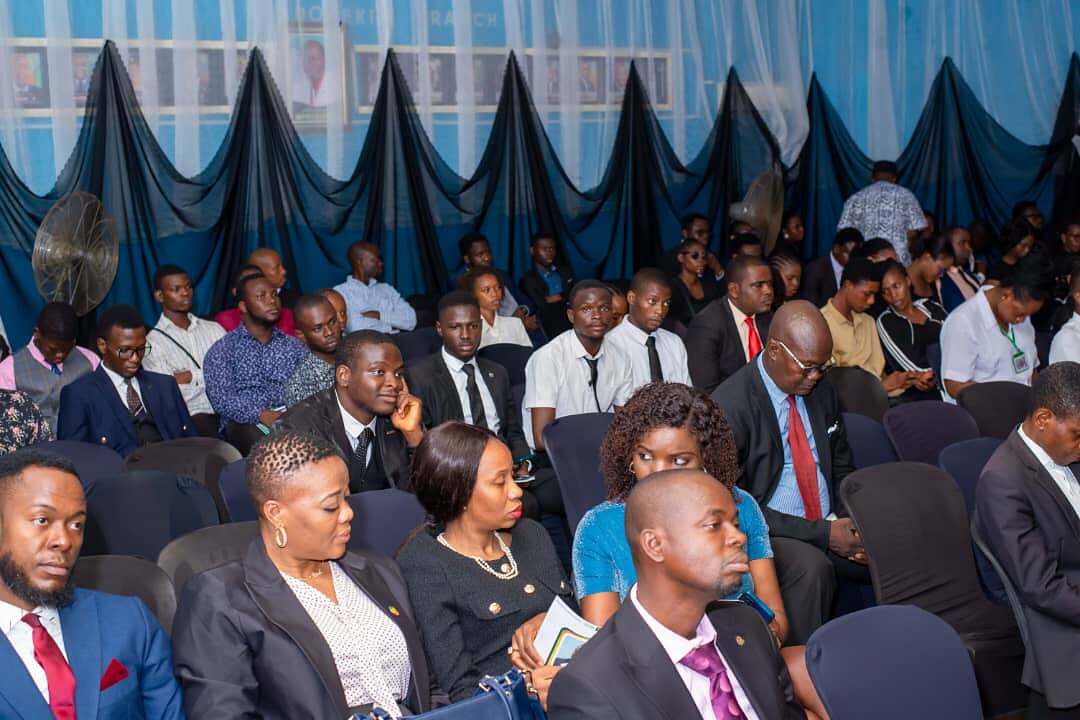 29. Lawyers should also take part in public discussion of matters concerning the law, the administration of justice and the promotion and protection of human rights. They should also join or form local, national or international organizations and attend their meetings, without suffering professional restrictions by reason of their lawful action or their membership in a lawful organisation. In exercising these rights, lawyers shall always conduct themselves in accordance with the law and the recognized standards and ethics of the legal profession.
29. Lawyers should also take part in public discussion of matters concerning the law, the administration of justice and the promotion and protection of human rights. They should also join or form local, national or international organizations and attend their meetings, without suffering professional restrictions by reason of their lawful action or their membership in a lawful organisation. In exercising these rights, lawyers shall always conduct themselves in accordance with the law and the recognized standards and ethics of the legal profession.
30. Public interest litigation is another way through which lawyers can make a significant contribution to the quest of economic stability in this post-election era. Lawyers can help promote accountability, hold governments and commercial companies accountable for their acts, and promote transparency and good governance through public interest litigation. This can aid in the reduction of corruption and the efficient and effective use of public resources, resulting in better economic outcomes. Public interest litigation can be used to encourage investment or create a favorable investment climate by improving openness and consistency in the legal and regulatory environment. Public interest litigation can also be used to encourage innovation by contesting existing regulations and practices that may be impeding innovation or limiting competition. This can result in the development of new technologies and industries, as well as increased local and foreign investment, which leads to job creation and economic growth.
31. As a matter of fact, just by diligently carrying out their daily activities, lawyers contribute to Economic and commercial development, and this is a way to make a significant contribution to the quest of economic stability in this post-election era. By offering legal advice and services to entrepreneurs, investors, and businesses, lawyers can help to stimulate business, investment and economic growth. This includes assistance with the development of new enterprises, contract negotiations, and regulatory compliance advice. Lawyers have a significant role in safeguarding economic and commercial rights in addition to promoting business and investment. Patents, trademarks, and copyrights are examples of intellectual property that can be protected by lawyers. Lawyers can help to foster invention and creativity, which can contribute to economic growth, by protecting intellectual property.
32. With the analysis of the various ways through which lawyers can be instruments of economic stabilities in the dwindling post-election Nigerian economy, the next question to be considered is how can lawyers position themselves to be able to function optimally in Nigerian’s dwindling post-election economy? Here are a number of ways in which lawyers can position themselves for the challenge ahead.
“…… it is the lawyer in various capacities who can see that human rights provisions in the constitution and those instruments do not simply become dead letters. The real challenge to Nigerian lawyers is that the legal infrastructures for flourishing human rights principles and the machinery for their enforcement are clearly in place.”
b. By fostering economic growth and development by providing legal support to businesses and entrepreneurs, advising on commercial transactions, and helping to resolve disputes in a fair and efficient manner. They play a critical role in protecting the rights of investors and promoting the development of a robust and transparent legal framework for business and commerce.
c. By supporting the Development of a Strong Civil Society: Lawyers can support the development of a strong civil society by providing legal advice to organizations and individuals engaged in advocacy and activism, and by working to promote an enabling legal and policy environment to help build a favourable business climate.
Conclusion
Lawyers play a critical role in strengthening institutions of good governance and thereby stabilizing the national economy. By providing legal advice and representation, ensuring that the rule of law is respected, promoting legal reform, protecting human rights, and supporting the development of a strong civil society, lawyers help to ensure that the rule of law is upheld and that citizens’ rights are protected. By promoting transparency and accountability, and serving as a check on government power, lawyers play a key role in building trust in government and public institutions and contributing to the overall stability and prosperity of a country or community. Lawyers play an essential role in building a more equitable and just world.
As the nation’s faces a decline, lawyers must play a critical role to ensure that the nation’s path to economic recovery is realized. Irrespective of what we think of the just concluded elections, we as lawyers have to recognize our role to contribute to the development of the society, irrespective of what we think of the just concluded elections, lawyers have to put in their best to do what is best for the country.
Today’s topic might have been phrased as a topic for discussion, but I daresay it is a charge,; a charge to lawyers to rise up for the economic development of our country.




